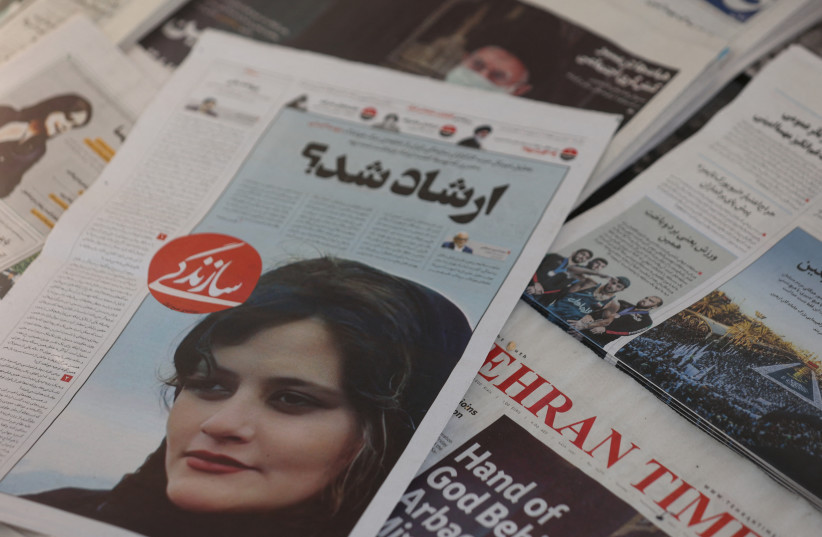A study conducted by the Iranian Culture and Islamic Guidance Ministry that was leaked to Persian press abroad revealed that the majority of Iranians wish for a secular government, Iran international reported last week.
The survey asked some 15,800 Iranians aged 18 and up. This study is the most recent in a series of four, with the previous one being conducted in 2015.
According to Iran International, the vast changes reflected in the study are due to the 2022 demonstrations which swept Iran following the death of Mahsa Amini, who died in custody of the "morality police." She was arrested for allegedly not complying with the hijab law.
The protest, termed “Woman, Life, Liberty,” was qualified by Islamic Revolutionary Guard Corps (IRGC) chief as “the strongest, most dangerous, and most serious” in the history of the Islamic Republic.

Figures show a change in society
Numbers show that 73% of Iranians want a separation between state and religion.
With regard to religion, 85% of participants said they have grown less religious in comparison with five years ago while a minority of 7% claimed the opposite. An additional 8% claimed they had not changed.
In addition, the figures show extreme skepticism regarding future religious observances in Iran. A vast majority, 81% of participants, foresaw a decrease in religious observance in the next five years. Some 9% answered they believed they would be more religious in years to come while 10% stated there would be no change.
Participants also shed light on the changing attitudes towards the compulsory wearing of the hijab. In the recent survey, more tolerance is expressed toward women who choose to disobey the rule.
Some 38% said they are impartial to women opposing the mandatory veiling, in comparison with a scant 10.6 in 2015.
While in 2015, only 15.7% voiced their opposition to the mandatory hijab law, in the recent survey, some 34.4 said the same. Conversely, only 7.9% of participants stated they were in favor of the mandatory hijab law, in comparison to 18.6% in 2015.
The survey comes amid the regime's continued efforts to curtail religious freedoms with the morality police patrolling streets and security cameras identifying those who do not abide by the imposed dress code.
Tzvi Joffre and Reuters contributed to this article.
